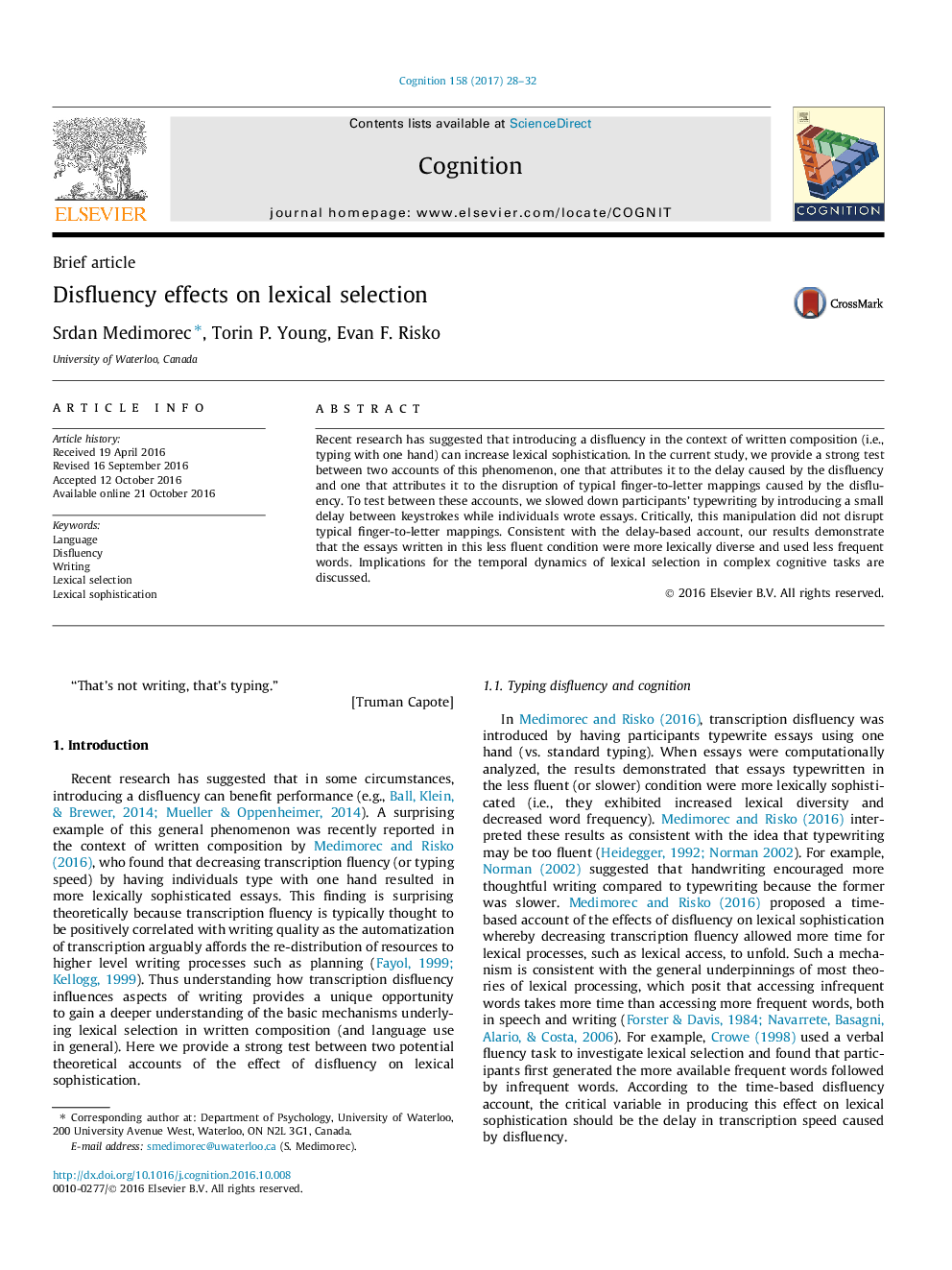| Article ID | Journal | Published Year | Pages | File Type |
|---|---|---|---|---|
| 5041696 | Cognition | 2017 | 5 Pages |
â¢A time-based account of the effects of transcription disfluency on lexical sophistication is tested.â¢Essays written with a slight keyboard delay were more lexically sophisticated.â¢A transcription disfluency is argued to provide additional time for lexical processes to unfold.
Recent research has suggested that introducing a disfluency in the context of written composition (i.e., typing with one hand) can increase lexical sophistication. In the current study, we provide a strong test between two accounts of this phenomenon, one that attributes it to the delay caused by the disfluency and one that attributes it to the disruption of typical finger-to-letter mappings caused by the disfluency. To test between these accounts, we slowed down participants' typewriting by introducing a small delay between keystrokes while individuals wrote essays. Critically, this manipulation did not disrupt typical finger-to-letter mappings. Consistent with the delay-based account, our results demonstrate that the essays written in this less fluent condition were more lexically diverse and used less frequent words. Implications for the temporal dynamics of lexical selection in complex cognitive tasks are discussed.
